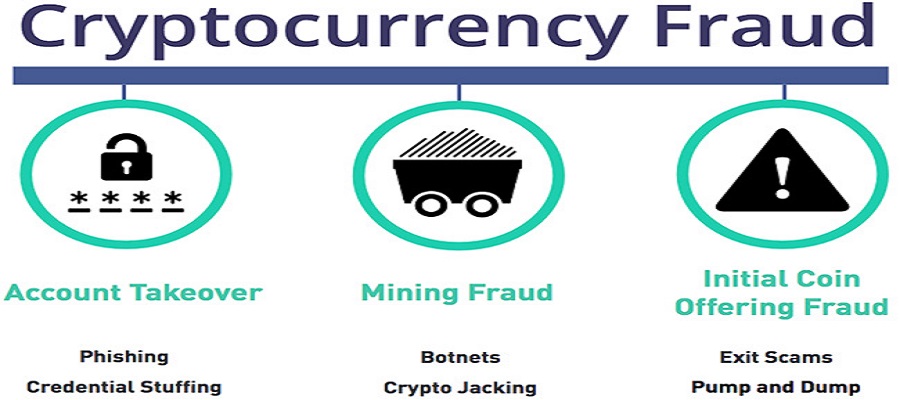E-Financial
CBN Recants Increases Weekly ATM withdrawal Limits from ₦100,000 to ₦500,000

The Central Bank of Nigeria (CBN) has increased the maximum weekly limit for cash withdrawals across all channels by individuals and corporate organisations to N500,000 and N5 million, respectively.

The directive is contained in a circular issued by the bank on Wednesday and signed by Haruna Mustafa, director of banking supervision department.
The development comes two weeks after the CBN reduced the weekly over-the-counter cash withdrawal limit for individuals to N100,000 and that of corporate organisations to N500,000.
The bank also reduced withdrawals at automated teller machines (ATMs) and point-of-sale terminals to N20,000 per day.
The policy had generated mixed reactions from Nigerians. While some said it would have a negative effect on small businesses, others applauded it as a strategic move towards boosting the cashless policy and reducing the amount of cash outside the banking system.
In the circular, the apex bank said it made the upward review based on feedback received from stakeholders.
“The Central Bank of Nigeria (CBN) hereby makes the following reviews: (1) the maximum weekly limit for cash withdrawal across all channels by individuals and corporate organisations shall be N500,000.00 and N5,000,000.00 respectively,” the circular reads.
“2. In compelling circumstances where cash withdrawal above the limits in (1) is required for legitimate purposes, such requests shall be subject to a processing fee of 3 percent and 5 percent for individuals and corporate organisations, respectively.
“Further to (2) above, the financial institution shall obtain the following information from the customer, at the minimum, and upload same on the CBN portal created for the purpose: valid means of identification of the payee (national ID, international passport, or driver’s license), bank verification number (BVN) of the payee, tax identification number (TIN) of both the payee and the payer, and an approval in writing by the MD/CEO of the financial institution authorising the withdrawal.
“Third party cheques above N100,000 shall not be eligible for payment over-the-counter, while the extant limit of N10 million on clearing cheques still subsist.”
The CBN said monthly returns on cash withdrawal transactions above the specified limits should be rendered to the banking supervision department, other financial institutions supervision and payments system management departments.
“Compliance with extant AML/CFT regulations relating to KYC, ongoing customer due diligence and suspicious transaction reporting etc. is required in all circumstances,” it added.
“Customers should be encouraged to use alternative channels (internet banking, mobile banking apps, USSD, cards/POS, eNaira, etc.) to conduct their banking transactions.
The apex bank said it recognises the vital role that cash plays in supporting underserved and rural communities and would ensure an inclusive approach as it implements the transition to a more cashless society.
“All banks and OFls are to note that aiding and abetting the circumvention of this policy will attract severe sanctions,” CBN said.
E-Financial
Secret Service Seizes $400M in Crypto, Cold Wallet among World’s Largest

US Secret Service has quietly seized nearly $400 million in digital assets over the past decade, amassing one of the world’s largest crypto cold wallets, Bloomberg reported at the weekend, citing people familiar with the matter.

The agency’s Global Investigative Operations Center (GIOC) has tracked funds through open-source tools, blockchain analysis, and patience, Jamie Lam, an investigative analyst with the US Secret Service, reportedly told law enforcement officials in Bermuda last month.
The agency’s crypto trove, much of which sits in a single cold-storage wallet, results from a string of investigations into scams. Scammers lure targets into seemingly legitimate crypto investment platforms in one typical scheme.
Victims often see initial profits before the sites vanish with their deposits.
“That’s how they do it,” Lam said. “They’ll send you a photo of a really good-looking guy or girl. But it’s probably some old guy in Russia.”
Lam’s team uses domain records, blockchain transactions, and VPN slip-ups to identify fraudsters. In one case, a cryptocurrency payment led investigators to another wallet. In another one, a brief VPN failure exposed an IP address, helping agents piece together the scam’s digital trail.
At the helm of the Secret Service’s crypto strategy is Kali Smith, who directs a team that has trained officials in over 60 countries to unmask online financial crimes.
The agency has focused on jurisdictions with weak oversight or programs selling residency to foreign nationals. “Sometimes after just a week-long training, they can be like, ‘Wow, we didn’t even realize that this is occurring in our country,’” Smith said.
The Secret Service’s work has uncovered scams ranging from romance-investment schemes to sextortion cases. One investigation involved an Idaho teenager who sent a nude photo to an online stranger. The scammer extorted $300 twice before the teen went to the police.
Analysts traced the payments through another coerced teenager acting as a money mule, leading to an account tied to nearly $4.1 million in transactions under a Nigerian passport.
British police arrested the suspected extortionist when he arrived in Guildford, England, where he remains in custody pending extradition.
E-Financial
Ascensia Finance Commences Operations in Abuja

Ascensia Finance Company has officially commenced operations to provide financial intermediation services in Abuja.
Licensed by the Central Bank of Nigeria (CBN) in April, the financial institution aims to support individuals and small businesses through customised financial solutions delivered via efficient and accessible channels.

It offers a broad range of services, including loans, investment products, and financial advisory services tailored to meet the evolving needs of its customers.
In a statement, Mr. Jude Ezeami, Managing Director/Chief Executive, Ascensia, stated that proud member of the Finance House Association of Nigeria (FHAN), and in partnership with the Nigeria Interbank Settlement System Plc (NIBSS) and Remita, the company is leveraging strong institutional relationships and digital infrastructure to offer reliable financial services.
He said, “At Ascensia, we are committed to the growth of our clients by delivering inclusive, customer-centric financial services that empower individuals and small businesses to thrive.
“Our suite of products is designed to address the financing needs of Nigerians — whether through accessible personal loans, business financing, or innovative investment solutions.”
He said with the company’s strong foundation, experienced leadership, and a deep understanding of the local market, Ascensia remained poised to become a key player in Nigeria’s financial services industry.
The company is driven by a team of seasoned professionals with extensive experience in Nigeria’s resilient financial services sector.
Anchored on the core values of Trust, Resilience, Integrity, Creativity, and Empathy (TRICE), the company introduced a suite of innovative financial products.
These include personal loans of up to N5 million for self-employed professionals, with a repayment tenor of up to 12 months.
The company also provides SME loans of up to N10 million, specifically designed to support shop owners and small business operators engaged in trade of fast-moving consumer goods, with financing available for inventory and working capital needs.
The Ascensia PayEasy, a “Buy Now, Pay Later” solution, enables individuals and companies to acquire consumer goods or assets with a minimum 30 per cent deposit, and repay the balance over a six-month period.
For salaried employees in both the public and private sectors, the company offers PayDay Loans of up to ₦5 million, repayable over 12 months.
Through its Contract Finance offering, Ascensia supports vendors, suppliers, and contractors working with credible companies, NGOs, and public-sector agencies.
The product facilitates timely order fulfilment and improves liquidity by providing early access to funds through invoice discounting on confirmed invoices from approved counterparties.
The company also offers group loans for traders, artisans, farmers, and producers of fast-moving goods.
These loans are structured around group-based cross-guarantees, making financing accessible to individuals with strong cash flows but limited collateral. Eligible borrowers can access up to N3 million, repayable within 180 days.
E-Financial
Union Bank Champions Civil Service Reform at International Conference

Union Bank, one of Nigeria’s most enduring financial institutions, made a resounding statement of support for governance reform by partnering with the first-ever International Civil Service Conference, held on June 25–26, 2025, at Eagle Square Arena, Abuja.

With the theme “Rejuvenate, Innovate & Accelerate,” the conference brought together civil servants, development partners, and senior government officials—including President Bola Ahmed Tinubu—to strategize on the digital transformation and renewal of Nigeria’s public service.
Hosted by the Office of the Head of Civil Service of the Federation in collaboration with the Global Government Forum UK, the event focused on modernizing governance through inclusive leadership, adaptive institutions, and seamless service delivery—values that resonate with Union Bank’s digital-first approach.
Speaking at the event, Mannir Ringim, Executive Director for North and Public Sector, emphasized the Bank’s dedication to national development:
“At Union Bank, we believe in the transformative power of public-private partnerships. Our support for this landmark conference underscores our commitment to modernizing Nigeria’s civil service through innovative financial solutions that foster transparency and efficiency.”
Union Bank’s presence at this pioneering event not only underscores its forward-thinking ethos but also positions the Bank as a catalyst for progress at the intersection of finance and public administration.

 Telecom2 days ago
Telecom2 days agoY’ello Care’s 21-Day Campaign Bridges Digital Divide for Thousands Nationwide

 General News2 days ago
General News2 days agoEnugu Air Commences Operations Today

 E-Business2 days ago
E-Business2 days agoGalaxy Backbone, Rural Electrification Agency Commit to Deepening Digital and Energy Access Across Nigeria

 Broadcasting2 days ago
Broadcasting2 days agoNDPC Slaps Multichoice with ₦766M Fine for Data Privacy Violations

 News2 days ago
News2 days agoLagos-Calabar Highway Gets $100M Push from ECOWAS to Drive Regional Growth

 Telecom2 days ago
Telecom2 days ago20 Years of Digital Leadership: Layer3’s Legacy and the Road Ahead

 News2 days ago
News2 days agoNBS May Release Rebased Figures for Nigerian Economy July 11

 Telecom12 hours ago
Telecom12 hours agoNCC Wins Global ICT Award for Digital Awareness in Schools



























